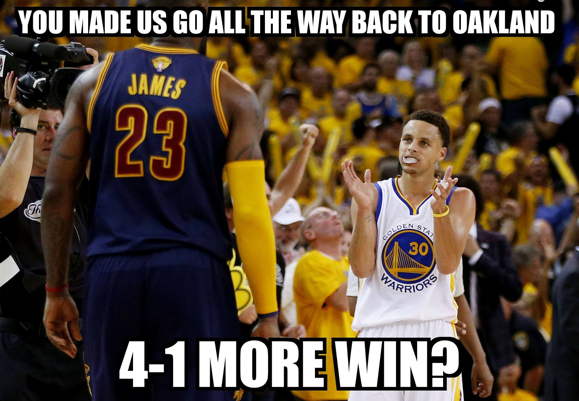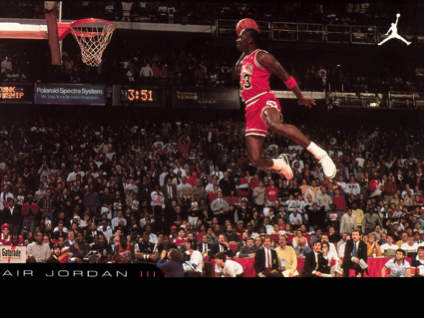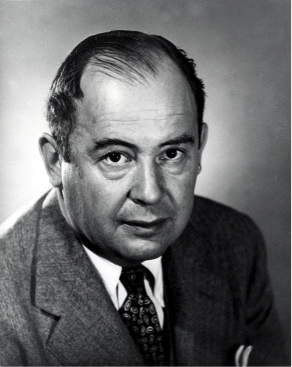Prompt Images
The Michael Jordan vs. LeBron of Physics
Every year, we seem to watch the [Insert City Here] LeBrons fall to the Golden State Durant-Curry-Thompson-Greens in the NBA finals, which feels a bit inevitable given the number of hyphens required to write out the latter team’s name.

King James has gone 6-3 in winning NBA titles, leaving him three shy of Michael Jordan. Of course this won’t end the debate: Who is greatest to ever play the game—Michael Jordan or LeBron James? Nor should it. Personally, I don’t give a damn who has won more rings. LeBron is the greatest ever [1].
In any case, considering LeBron’s legacy has me thinking about a similar question that you’ll find discussed among the physics phan-boys and phan-girls of the world: Who was the greatest physicist ever—Isaac Newton or Albert Einstein?
No need to visit some nerdy physics forum you never knew existed to learn the answer. It’s Newton.
Elevators and Apples
I’ll give this to Einstein. He had arguably the most brilliant idea to ever arise from the gelatinous pile of neurons that we call brains. While sitting at his desk in the Swiss patent office, Einstein had what he would later describe as his “happiest thought.” Einstein had been trying to understand how gravity fit into spacetime, that hybrid of x’s and t’s that he himself had invented only a few years before.
While pondering a person floating in a box in outer space (don’t ask), Einstein suddenly came to the realization that gravity could be understood as a curvature of spacetime (and vice versa). Exactly how he made that leap is grist for another post. Weird as it may sound, this was his brilliant realization, and later experiments confirmed it is correct. Gravity = curved spacetime. No gravity = flat spacetime.
A decade after having this “happiest thought,” Einstein formulated his full General Theory Relativity (about curved spacetime), which contained within it his earlier Special Theory of Relativity (about flat spacetime). Space and time and gravity were suddenly all united like robotic cats coming together to form that Voltron guy. Einstein’s theory of relativity would go on to become one of the central pillars of modern physics, and Einstein would go on to become one of the most recognized people in the world.

This Voltron guy was literally the coolest toy I owned as a child.
But Newton too had a wonderful thought, if less “sexy” by modern standards. In Newton’s day many people believed that the laws of nature that held sway on Earth were different from the laws that governed the planets and other celestial spheres. It was Newton who took seriously the notion that a common force (gravity) was responsible for both the apple falling and Earth orbiting the sun.
Newton also apparently had a sudden “lightbulb” moment, much like Einstein would have centuries later.
Here’s Newton’s friend William Stukeley recounting the fabled “falling apple” story:
After dinner, the weather being warm, we went into the garden and drank tea, under the shade of some apple trees. [Newton] told me, he was just in the same situation, as when formerly, the notion of gravitation came into his mind. It was occasion’d by the fall of an apple, as he sat in contemplative mood. [2]
“Why should that apple always descend perpendicularly to the ground,” thought he to himself. “Why should it not go sideways, or upwards? But constantly to the earth’s centre? Assuredly, the reason is, that the earth draws it. There must be a drawing power in matter.”
From this idea Newton went on to develop not just a “pillar” of physics, as Einstein did with his theory of relativity, but the whole damn foundation.
Now, a case could be made that Newton’s leap was more straightforward: Newton basically proposed that whatever causes planets to orbit the sun was the same thing that causes the particular motions of apples and people here on Earth. Good on him, but it feels like the sort of leap other folks with lesser IQs than Newton could have made.
In contrast, Einstein made the seemingly impossible intellectual leap of saying gravity (a force) and the curvature of spacetime (very much not a force) were two sides of the same coin. It would be like someone coming up to you and saying, “Hey, see that dog and that jar of pickles? They are actually the same thing.” You’d be like “get the f*ck out of here.” What Einstein proposed was only slightly less crazy. But it was also right, so crazy became genius.
A Certain Kind of Genius
If the debate over Newton vs. Einstein were simply about who came up with the single best idea in the history of things that have been thought, Einstein would win hands down. Best. Idea. Ever.
But to stop here would be like saying MJ > LeBron because of the Jumpman dunk. Best. Dunk. Ever. (Not really.)

I dunno, his head isn’t even above the rim…
We can’t just compare Einstein’s best thought to Newton’s best thought. We have to compare their bodies of work.
Before we turn to said bodies, we first need to clear up a misconception about Einstein. Contrary to popular belief, Einstein was not the sharpest mind evolution ever produced. I’m skeptical when people trot out stories that Einstein had the highest IQ ever recorded, or that his brain was unique in size and shape, or that he was able to “access” a higher percentage of his brain than other people.
I’m skeptical, not because I doubt that Einstein was a genius, but because I doubt he was the sort of genius we tend to think about and see popularized on TV. The kind of mind that remembers everything. That calculates quickly and without error. The kind of mind that can master any intellectual subject in less time than most of us take to devour a footlong Subway sandwich.
Such geniuses have existed. Take for example one of Einstein’s contemporaries: Johnny von Neumann.

When you picture in your mind the caricature of a genius, you are imagining someone like von Neumann. Here’s what the Nobel prize winning physicist Eugene Wigner wrote about von Neumann and Einstein:
I have known a great many intelligent people in my life. I knew Planck, von Laue, and Heisenberg. Paul Dirac was my brother in law; Leo Szilard and Edward Teller have been among my closest friends; and Albert Einstein was a good friend, too. But none of them had a mind as quick and acute as Jansci [John] von Neumann. I have often remarked this in the presence of those men and no one ever disputed me.
In case you have any doubts on where Wigner stands he was often heard saying of von Neumann that he was so incomparably brilliant that “only he was fully awake.”[3]
For Wigner, von Neumann, not Einstein, was the sharpest mind in the pantheon of brilliant minds that admittedly also included Einstein.
To be fair to Einstein, Wigner did say that Einstein thought more deeply and produced more original insights than von Neumann, but that is actually my point. Einstein was a genius, but a particular kind of genius. Not the kind that would necessarily beat Ken Jennings at Jeopardy or calculate 183749283 x 19474747382 in his head in a second. (von Neumann on the other hand…)
Something Borrowed, Something New
This understanding of Einstein’s genius, that it was a genius of originality, rather than one of technical mastery, matters when comparing Einstein and Newton. Because it appears that Isaac Newton was both highly original (again, see the foundations of all of physics) and had a technical mastery of mathematics that far surpassed Einstein’s abilities. Newton was arguably one of the best mathematicians in history, let alone one of the best “physicists who were also pretty good at math.”
Einstein was no slouch at math. But in the world of von Neumann and other mathematical prodigies, Einstein’s math skills were just OK. His general theory of relativity made use of a notoriously difficult branch of mathematics called Riemannian geometry. He learned it and used it for his theory, but he never exactly mastered it. At least, if you believe David Hilbert, the most renowned mathematician of the day. Hilbert once remarked, in an attempt to troll Einstein, “Every boy in the streets of Gottingen understands more about four-dimensional geometry than Einstein.” Burn!!
Compare this with Newton’s situation. Newton’s theory of mechanics relies heavily on calculus. But Newton didn’t borrow calculus from anyone. He couldn’t have because it didn’t yet exist [4]. So he did what anyone in his situation would do. He invented a new branch of mathematics whole cloth to hold all of his physical insights. And, as a byproduct, helped build the fortunes of the college professors who would go on to write the textbooks for Calc 101 [5].
And this is why, for me, Newton gets the nod over Einstein. Einstein bought a prefabricated Curved Spaceentaagen™ from IKEA to store his (absolutely brilliant) ideas about gravity. Newton stored his own original ideas about gravity on custom built-ins that he made from scratch, complete with beautiful inlays and beveled edges.
Or, if we want to bring this back to our basketball discussion, it would be as if Jordan and LeBron put up comparable stats on the court, but Jordan also invented dunking, the pick and roll, and dribbling.
Footnotes:
[1] I never even watched Jordan play in his prime, so don’t take my word for it. This is the best take on the debate I’ve ever read. The gist of the argument in that piece is this: statistically MJ and LeBron are indistinguishable—but would you rather go with the guy who has demonstrated an ability to make everyone around him better (looking at you Tristan Thompson), or the guy who would kill your mom if she stood between him and another ring? I mean, if you are cool with mom killers, then by all means, draft Jordan.
[2] Newton had his stroke of genius while sipping tea in a garden. Einstein had his brilliant idea while he was busy not doing any actual work at his cushy government job. Any wonder I spent most of my 20s wanting to be a physicist?
[3] If anyone ever said this about me, you can be damn sure it would be etched onto my tombstone.
[4] Technically, there is a dispute over who first invented “The Calculus,” Newton or the German mathematician Gottfried Wilhelm Leibniz. You can read the Wiki article on the controversy for all the juicy details. I’m pretty sure Newton didn’t steal calculus. Although I’ll readily admit that Leibniz’s notation for differentiation is far superior to Newton’s stupid dot notation.
[5] Think I’m kidding that there is money to be made in writing calculus textbooks? That’s because you’ve never heard of Integral House, the $30 million dollar home built by an eccentric math professor who wrote the most widely used calculus textbook in the United States and Canada.



